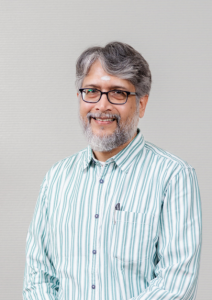In India’s policy environment today, think tanks perform a crucial function. Where the high-intensity and daily pressure of execution and implementation leaves policymakers little time to reflect deeply on policy goals and policy design, think tanks render a valuable service by attempting to fill the gap.
Increasingly, however, think tanks are not just filling a knowledge gap, but also seeking to validate the knowledge that they produce through active engagement with policymakers. This typically takes the form of running a pilot intervention of some sort and then evaluating whether the intervention works or not.
In many instances, this kind of activity is shading into consulting-style engagements. Indeed, consulting companies are now launching their own specialized in-house policy units that function like think tanks. The only caveat is that much of the knowledge produced in these units is meant for business development purposes rather than policy advocacy per se.
In other cases, the think tank is functioning more as a platform for convening stakeholders to discuss an important current public policy issue.
At Dvara Research, we welcome all these developments even as we remain closely anchored to the original vision of our founding – which was to produce knowledge as a pure public good that both public and private sector stakeholders can access and use free of cost. That is, knowledge production remains our core activity as a think tank, with no consideration for the monetizable quality of that knowledge.
We believe that this orientation is rare enough to be almost unique in today’s policy environment. It confers three very important benefits in terms of the quality of knowledge we create.
Firstly, it allows us to keep our primary stakeholders – which are low-income households of India – always in view as we think about how to best reach formal finance and social protection to them.
Secondly, it allows us to prioritize the most rigorous search for the answers to difficult policy questions in the domains of financial inclusion and social protection. This means that we permit ourselves the time to think deeply and to write clearly and persuasively.
Thirdly, it allows us to advocate for radical shifts of perspective even if such advocacy requires us to dig in our heels and brace for a sustained multi-year effort.
These three aspects are not always well understood or properly appreciated in the current policy environment, where there is often an urgency to capitalize on “low hanging fruit” for the purposes of being able to demonstrate impact. This has led to a situation where thinks tanks like ours are now sometimes competing with for-profit consulting firms for “business”.
Yet, the price of a public good is diligence, care and above all, patience. As Executive Director of Dvara Research, it is my hope that the nature of what think tanks like ours do is recognized for its unique value and contribution to the unfolding India story.



